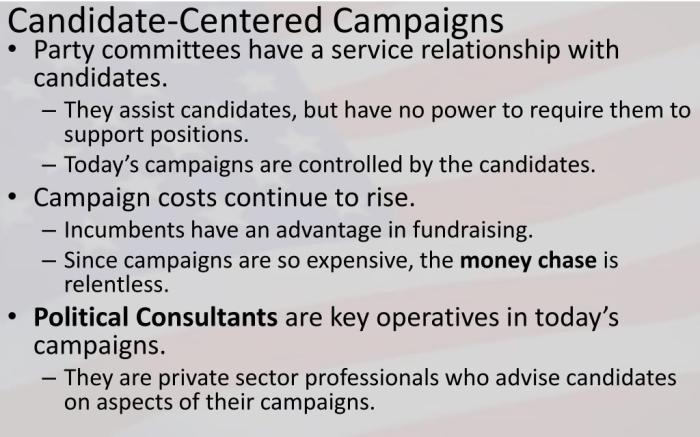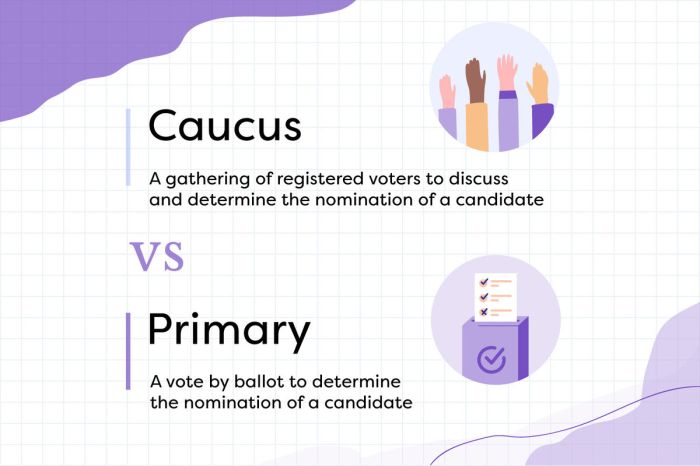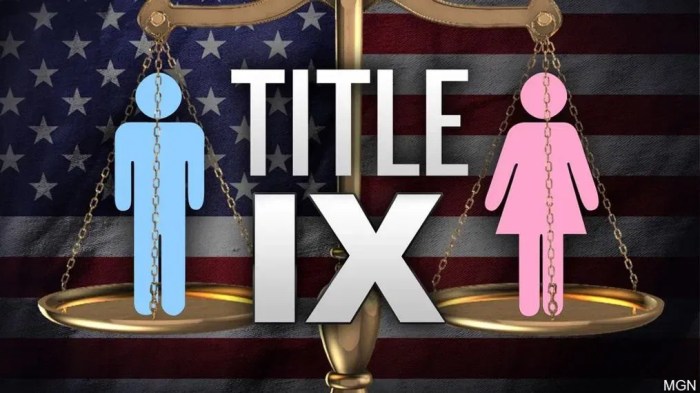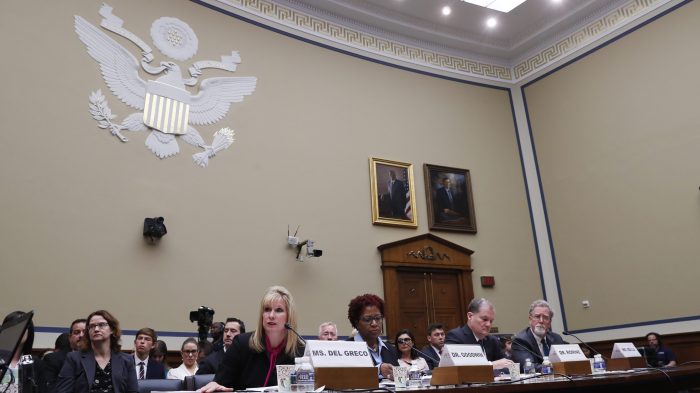Candidate-centered campaigns ap gov definition: A type of political campaign that focuses on the individual candidate rather than the political party they represent. These campaigns emphasize the candidate’s personal qualities, policies, and vision for the future.
Candidate-centered campaigns have become increasingly common in recent years, as voters have become more interested in the candidates themselves than in the party labels they carry.
Definition of Candidate-Centered Campaigns

Candidate-centered campaigns prioritize the individual candidate over the political party. They focus on building a personal connection with voters by emphasizing the candidate’s unique qualities, experiences, and policy positions.
Examples include Barack Obama’s 2008 campaign and Donald Trump’s 2016 campaign.
Characteristics of Candidate-Centered Campaigns: Candidate-centered Campaigns Ap Gov Definition

Candidate-centered campaigns are characterized by:
- Strong personal brand
- Emphasis on candidate’s charisma and personality
- Direct communication with voters
- Use of social media and digital platforms
- Focus on issues that resonate with the candidate’s personal experiences
They differ from party-centered campaigns, which emphasize party loyalty, ideology, and a unified party platform.
Advantages of Candidate-Centered Campaigns
Candidate-centered campaigns offer several advantages:
- Increased voter engagement
- Enhanced candidate visibility and name recognition
- Greater control over campaign message
- Improved ability to connect with specific voter demographics
- Reduced reliance on party infrastructure
Disadvantages of Candidate-Centered Campaigns
Candidate-centered campaigns also have some disadvantages:
- Potential for candidate burnout
- Increased financial burden on the candidate
- Difficulty in maintaining a consistent message across multiple platforms
- Reduced party support and resources
- Greater vulnerability to negative attacks
Historical Examples of Candidate-Centered Campaigns

Candidate-centered campaigns have a long history in American politics:
- Andrew Jackson’s 1828 campaign
- Abraham Lincoln’s 1860 campaign
- Theodore Roosevelt’s 1904 campaign
- Franklin D. Roosevelt’s 1932 campaign
- Ronald Reagan’s 1980 campaign
These campaigns demonstrated the power of a strong personal connection between the candidate and the electorate.
Contemporary Examples of Candidate-Centered Campaigns
Candidate-centered campaigns remain prevalent in modern politics:
- Barack Obama’s 2008 and 2012 campaigns
- Donald Trump’s 2016 campaign
- Bernie Sanders’ 2016 and 2020 campaigns
- Alexandria Ocasio-Cortez’s 2018 campaign
- Pete Buttigieg’s 2020 campaign
These campaigns used a variety of strategies, including social media, grassroots organizing, and targeted advertising.
Future of Candidate-Centered Campaigns

Candidate-centered campaigns are likely to continue to play a significant role in American politics:
- Technology and social media will continue to empower candidates to connect with voters directly.
- Voters are increasingly seeking candidates who represent their values and experiences.
- Political parties are facing challenges in maintaining control over their candidates and platforms.
Candidate-centered campaigns offer a way for candidates to differentiate themselves from their opponents and appeal to voters on a personal level.
FAQ Summary
What is a candidate-centered campaign?
A candidate-centered campaign is a type of political campaign that focuses on the individual candidate rather than the political party they represent.
What are the advantages of candidate-centered campaigns?
Candidate-centered campaigns can allow voters to make more informed decisions about the candidates they support.
What are the disadvantages of candidate-centered campaigns?
Candidate-centered campaigns can lead to more negative and divisive campaigns.